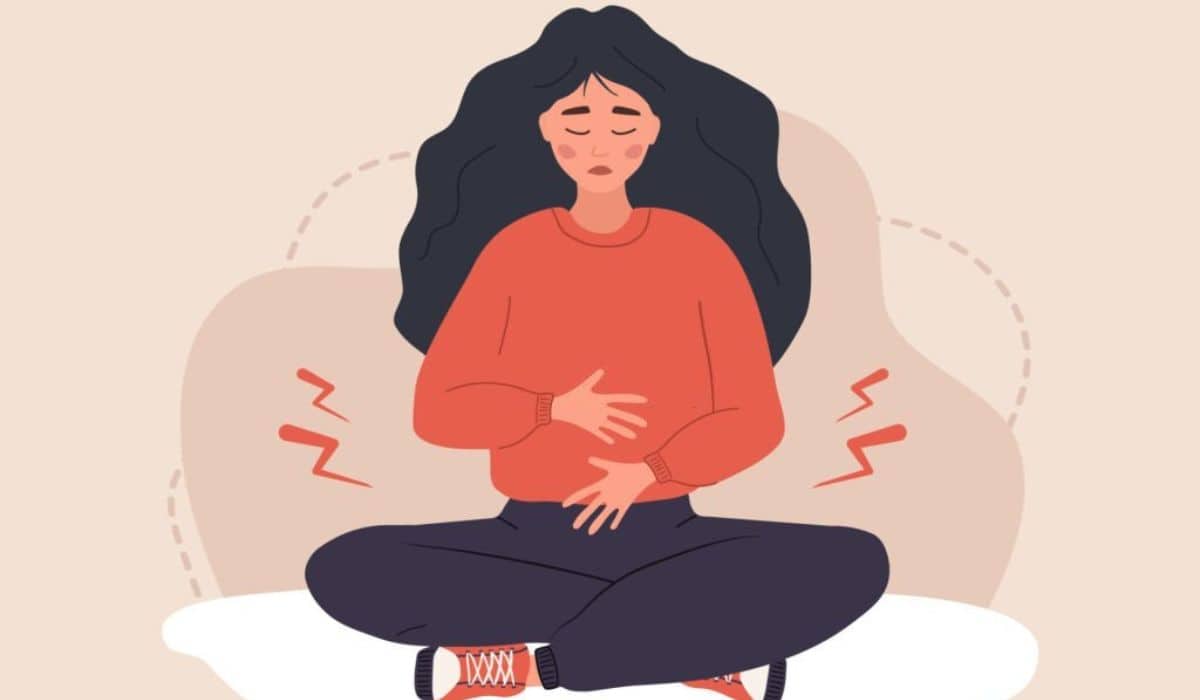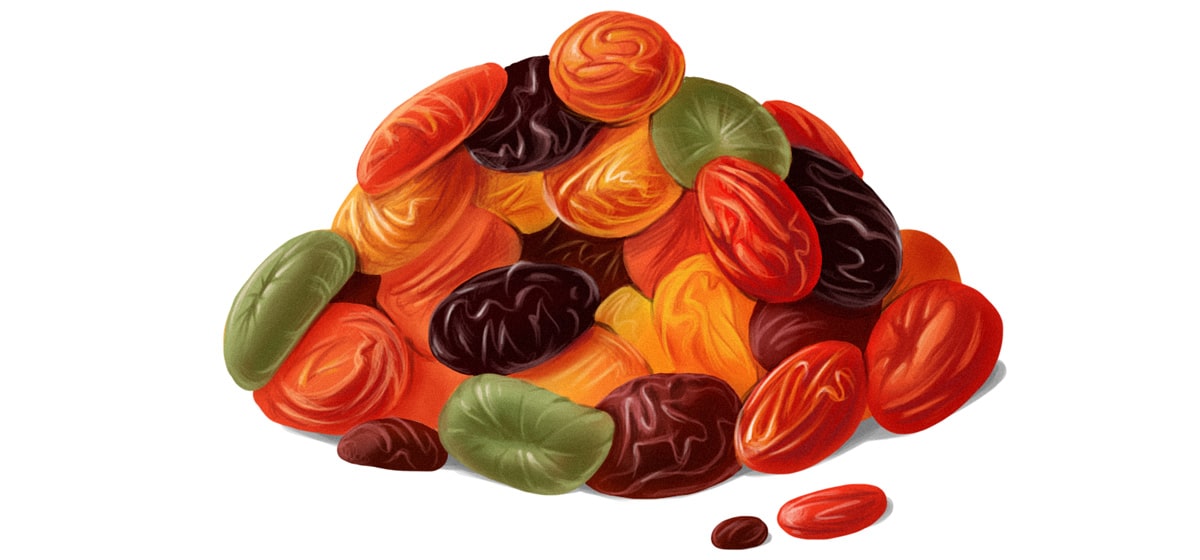
If you struggle with constipation, diarrhea, bloating, awful gas, or general abdominal pain around your period, you’re not alone: roughly one third of women with no other digestive problems experience GI symptoms during and just before menstruation.Women who already have symptoms of Irritable Bowel Syndrome (IBS) also tend to have worse symptoms around that time of the month. In fact, hormonal and inflammatory changes during the menstrual cycle are so strongly tied to gastrointestinal symptoms that this study even suggests that female reproductive hormones might be a major driving factor in IBS.
The “why” is a bit more complicated - after dozens of studies on female sex hormones and digestion, it’s not completely clear specifically why some women get GI symptoms around menstruation while others don’t. But here’s a look at the research on menstruation-related digestive symptoms and some suggestions for diet fixes.
Why does the menstrual cycle affect digestion?
Reason 1: It’s that pesky estrogen again!
One reason is the fluctuation in sex hormones throughout the cycle. The two big culprits here are estrogen and progesterone. Estrogen increases GI motility - the more estrogen you have, the faster things move through your system, so to speak. Progesterone does the opposite: the more progesterone, the slower things will move. Some studies have found that women generally have longer gastrointestinal transit time during the luteal phase of the menstrual cycle (that’s the two weeks before menstruation starts).
Estrogen and progesterone also both affect pain perception, which changes how women experience the feeling of gas in their intestines. This means that a totally normal amount of gas or “fullness” can feel very uncomfortable. This may be one reason why IBS gets worse during menstruation: hypersensitivity is a huge part of IBS symptoms, so if menstrual hormones make the hypersensitivity even worse, it stands to reason that IBS would fluctuate with the menstrual cycle.
Reason 2: Prostaglandins
Another potential culprit for digestive issues during menstruation: prostaglandins. Prostaglandins are compounds that mediate the inflammatory response. Around the time menstruation begins, levels of prostaglandins in the uterus go way up. This may cause loose stools or diarrhea during the first few days of menses. This study suggests that the greater levels of prostaglandins during menstruation is likely one major reason why women with IBS experience worse symptoms during their periods. They aren’t necessarily suffering from any physical changes in their gut; they’re just feeling everything more intensely (think of the way that having a sunburn makes you feel even a very light touch on that part of your skin very intensely - it’s the same idea, but inside.) The same is true for women with Inflammatory Bowel Disease.
Reason 3: Psychological changes

Whatever’s going on in your head generally affects your digestive health, and menstrual cycle symptoms are no exception. This study points out that psychological premenstrual symptoms, like stress and depression, can affect digestion and bowel function. It’s already clear that mood is a huge driver of gut health, so this definitely shouldn’t come as a surprise This study even suggested that stress, anxiety, and other emotional changes during the menstrual cycle might be the primary cause of premenstrual and menstrual gastrointestinal symptoms.
Eating for digestive comfort all month long: could a low-FODMAP diet help?
Now for the practical part: is there any way to adjust your diet to alleviate some of these problems?
Believe it or not, no studies have directly compared different diets to see which one helps women with digestive symptoms around menstruation - even though this is a thing that a third of otherwise asymptomatic women experience! But the connection between IBS and menstruation is really interesting here and suggests one possible option: a diet low in some particular types of fiber around menstruation.
To take this one step at a time, we’ll start with the fiber types. If you’ve been in the Paleo world for very long, you’ve probably heard of FODMAPs. The abbreviation stands for Fermentable Oligosaccharides, Disaccharides, Monosaccharides, and Polyols.
FODMAPs are basically fibers that the human digestive system can’t fully process. Instead, they’re fermented by the bacteria that live in our guts. The fermentation process produces gas - “gassy” foods like beans, Brussels sprouts, and cabbage are “gassy” because they’re high in FODMAPs. For people who are sensitive to FODMAPs, eating too many of them can also pull water into the colon and cause constipation, urgency, loose stool, and/or feelings of bloating. You might recognize this list as the exact same symptoms that many women experience around their periods. (And check out some other problems that might respond to FODMAP elimination here).
FODMAPs and menstrual digestive symptoms

Women might be more sensitive to FODMAPs around menstruation because the hormonal changes at that time of the month already cause hypersensitivity (that’s that sunburn-on-the-inside feeling where everything is more intense and acute and any bloating or gas feels a hundred times worse), inflammation, and slower transit. These are all changes that would make someone more sensitive to FODMAPs-induced GI issues.
The research on IBS and menstruation also suggests that there’s something here. Higher sensitivity to FODMAPs around menstruation could also explain why IBS gets worse during that time of the month: a lot of research on IBS indicates that IBS is partially or even completely a heightened sensitivity to FODMAPs, and that a low-FODMAP diet is helpful in many IBS patients. Maybe women with IBS have worse symptoms around menstruation because menstruation just makes them even more sensitive to their trigger foods than they already were.
In any case, trying a low-FODMAP diet is cheap and easy, so it’s likely worth at least a trial run for anyone interested. If you’re going to try it, start the low-FODMAP diet starting a few days before symptoms generally begin (since food takes a day or two to fully run through your system). A lot of high-FODMAP foods are eliminated on Paleo anyway (beans are the most obvious culprit), but just eating Paleo doesn’t guarantee that your diet is also low-FODMAP. Paleo foods high in FODMAPs include:
- Garlic, onions, and other vegetables in that family
- Broccoli, cauliflower, Brussels sprouts, cabbage, and other vegetables in that family
- Most fruits - dried fruits are especially bad because it’s so easy to eat so much of them
- Nuts in large amounts
See here for a complete FODMAP food list.
Summing it Up
Digestive issues around menstruation are very common - women with pre-existing issues like IBS often get worse symptoms, and even women who don’t have trouble the rest of the month can get symptoms that feel like temporary IBS before and during their periods.
Unfortunately, no studies have fully evaluated the best diet practices for this, but it’s possible that FODMAPs carbohydrates might be a trigger for some women, especially considering the connection between menstrual GI issues and IBS.
Have you found anything that really works for menstrual GI issues? Share the love on Facebook or Twitter!





Leave a Reply